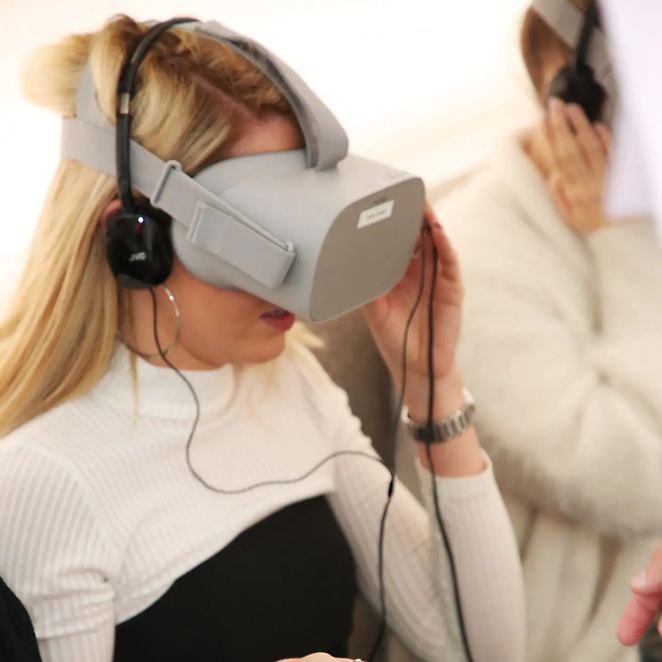Virtual reality technology which allows social workers to experience abuse through a child’s eyes is set to be used to cut knife and gang crime following a successful pilot.
The pioneering technology, which is being used by more than 30 local authorities and organisations to give social workers, teachers and district judges a better understanding of the needs of children in care, will be developed to help troubled youngsters following a spate of fatal stabbings.
Cornerstone, the company which pioneers the cutting-edge technology, is in talks with London boroughs to see if it can prevent children being unwittingly exploited by gangs – and even help to de-radicalise Muslim teenagers.
It comes after the programme, the first of its kind in the world which sees social workers wear headsets to experience abuse and neglect from a child’s perspective – was hailed “revolutionary” by the head of the Children and Family Court Advisory Service (CAFCASS), which represents children in care.
Anthony Douglas said: “Foster carers, adoptive carers and parents can understand the impact of major family issues like neglect and domestic abuse much quicker and in a much deeper way through being immersed in a VR experience, than is possible through conventional learning programmes. I strongly believe that VR can have as similar positive impact on many of the social issues we face in Britain today.”
Cornerstone’s CEO Helen Costa said: “We have been talking to those Councils most affected by violent youth crime, such as Lambeth who are willing to look outside the box to see how we can apply what we’ve achieved in children social care to the escalating issues of knife crime and youth crime and that’s our next massive challenge.
“A young person is going to interact with a VR experience much more readily than they will sit down with a police officer for a cup of tea. When it comes to child sexual exploitation, county lines and gang culture – kids are roped in unwittingly at first. We think harnessing the power of virtual reality to both engage and challenge kids’ perspectives will help them to make better life choices, and as the leaders in VR based behaviour change, we are well placed to take on such an ambitious but worthwhile project.”

Cornerstone has pioneered the cutting-edge technology
The current VR programme contains 12 episodes which give a visceral insight into the effect of abuse and neglect on children from when they are in the womb to in their late teens.
The harrowing footage – see from the child’s perspective – shows a baby being shouted at in its cot, a toddler being neglected – and then explores the impact on the child’s behaviour at school.
A hundred per cent of child care professionals who have used the programme since it was launched in February 2017 said they would recommend it.
Mr Douglas has claimed that the day-long VR based training session can achieve as much as months of conventional intermittent training involving interviews and role playing sessions.
Ms Costa, who has two adopted children, said the response from those who have used the VR technology was “overwhelmingly positive”.
“Ninety per cent of social workers who used it said they would do something differently as a result, 88 per cent of district judges agreed and so did 91 per cent of teachers. The immerse VR experience has a proven track record of increasing empathy and producing better outcomes for children in care.
“We have managed to shrink down the typical two to three years of traditional experiential learning to prepare people to foster, adopt or work with children into a matter of days.”
The programme has been used with over 500 individuals including professionals, adopters, foster carers and special guardians and across all types of placements the technology has supported a change in family dynamics to enable children to stay put when the placement was likely to have broken down.
“We’ve worked with many families who are still together as a result,” said Ms Costa.
“What I’d like now is work with the best game makers in the world to develop this technology for use by the youngsters themselves and turn it into an intervention that will turn lives around. Let’s use technology for better outcomes for our children.”
Quelle:
Foto: Social workers wear headsets to experience abuse and neglect from a child’s perspective
https://vrroom.buzz/vr-news/trends/vr-lets-social-workers-experience-child-abuse

